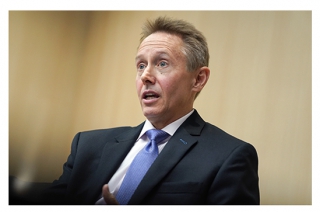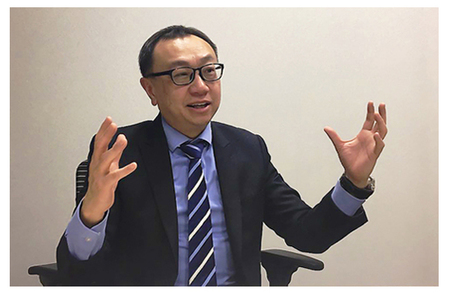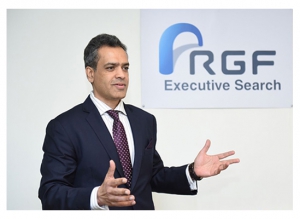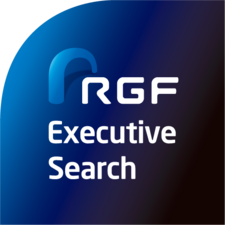Strong business growth and a positive outlook from corporate leaders has increased demand from multinationals for qualified staff across all sectors in Asia. RGF International Recruitment believes addressing these needs requires a unique combination of local insight and regional reach.
 For US or European companies looking for new opportunities, opening an office in Asia can be a lucrative decision. For more than two decades, many of the region’s economies have grown rapidly, fuelled by rising exports, growing populations and a large emerging middle-class.China, India and Vietnam have all posted annual GDP growth rates well above 5% for the past eight years, according to the World Bank, while fast-growing nations like Myanmar and Indonesia offer new consumer markets in diverse sectors. From a business-to-business and operations perspective, Asia’s innovation and technology leaders Japan, India and China have also become critical global markets, while Singapore and Hong Kong have cemented their positions as key healthcare and financial hubs.
For US or European companies looking for new opportunities, opening an office in Asia can be a lucrative decision. For more than two decades, many of the region’s economies have grown rapidly, fuelled by rising exports, growing populations and a large emerging middle-class.China, India and Vietnam have all posted annual GDP growth rates well above 5% for the past eight years, according to the World Bank, while fast-growing nations like Myanmar and Indonesia offer new consumer markets in diverse sectors. From a business-to-business and operations perspective, Asia’s innovation and technology leaders Japan, India and China have also become critical global markets, while Singapore and Hong Kong have cemented their positions as key healthcare and financial hubs.
As a result, investment into Asia has boomed, as has the number of multinational companies who have established regional headquarters or country offices. Foreign companies invested more than $440 billion in Asia in 2016, and the region accounted for one quarter of FDI inflows globally, according to the UNCTAD World Investment Report 2017.
However, while business opportunities abound, emerging protectionist policies in parts of Europe and the US have recently threatened the long-term economic landscape of the region, which has thrived in large part on global advancement of free trade. Trump’s recent threats to impose tariffs on imported aluminium, steel, washing machines and solar panels and his 2017 decision to abandon the 12-nation Trans Pacific Partnership—abruptly ending the deal, which required ratification by all participating countries—are both seen as major setbacks for Asia.
Such policy changes may make for nervous global executives, but the feeling on the ground, especially when it comes to business growth and the recruitment of staff, is overwhelmingly optimistic according to the senior management team of RGF International Recruitment (RGF), part of Japan’s Recruit Group.

“The US and the UK are turning their gaze inward more than they have in the past, but the Asian economies see that as an opportunity.”
“The US and the UK are turning their gaze inward more than they have in the past, but the Asian economies see that as an opportunity,” says RGF’s regional head of South-east Asia and Japan, Mr John Tucker. “Asian nations are heavily trade-driven economies, much more so than the US or the UK. I see them taking a more independent role and forging ahead, which will only serve to drive the economies where we work.”
“Clients see growth and opportunity and big initiatives in Asia—whether it be in infrastructure, healthcare of financial services,” Mr Tucker adds. “There are some extraordinarily strong economies like Japan, India and China where they see tremendous opportunities and many economies, in particular in South-East Asia, are still developing rapidly.”
Diverse Demand
 This growth and opportunity has increased demand for qualified staff across all business sectors in the region, according to Mr Tucker, although he says business needs in each country differ by sector and local economic conditions. In Japan, for example, where the aging population is changing the face of the country’s economy, demand for people with healthcare qualifications and experience has grown substantially over the last decade.
This growth and opportunity has increased demand for qualified staff across all business sectors in the region, according to Mr Tucker, although he says business needs in each country differ by sector and local economic conditions. In Japan, for example, where the aging population is changing the face of the country’s economy, demand for people with healthcare qualifications and experience has grown substantially over the last decade.
RGF has also observed growing healthcare demand in developing economies. Mr Tucker says this has been driven by the region’s growing middle class, along with government initiatives like a Vietnamese plan to develop more than 200 new and specialist hospitals. “Obviously the opportunities are fantastic for medical devices and, later on, pharmaceutical sales,” Mr Tucker says of the knock-on effects. “Whether it’s healthcare or financial services or infrastructure, Asian markets are developing rapidly. The opportunities for global players are significant.”
While demographic change has been a key factor in healthcare recruitment growth in Japan, demand for technology has been a catalyst in China according to Mr David Chan, who leads RGF’s executive search operations in greater China. He says that as China’s manufacturing base continues its shift towards high-tech and service industries, he sees the greatest short- to medium-term recruitment needs in healthcare, e-commerce, and technology.
“Shenzhen has been likened to the Silicon Valley of China. There are a lot of start-ups, a lot of technology, a lot of finance and real-estate businesses there and a lot of investment being pumped in,” Mr Chan explains. “Also, a lot of these Chinese corporations are expanding internationally, and they’re increasingly looking for candidates who have offshore experience—whether they’re global citizens who’ve worked internationally, or Chinese nationals who have studied and worked abroad and are wanting to return to China.”
Mr Chan says this change reflects an important hiring consideration for multinationals across most of Asia, where a person’s cultural abilities are as important as their straight qualifications. “Cultural awareness and the ability to work across cross-cultural barriers is very important,” he explains. “What companies are looking for are people with the right business skills that can actually lead the company in terms of their future growth and development.”

“What companies are looking for are people with the right business skills that can actually lead the company in terms of their future growth and development”
The changing face of technological innovation in corporates and business disruption has also had a significant impact on multinational hiring trends in India, according to RGF’s head of Indian operations, Mr Sanjay R Shastry. He says that in the two decades RGF has been operating in the country, the company has developed core industry knowledge and relationship skills that can help companies overcome the challenges presented by the sheer diversity of the country. “Our collaboration with clients is intense, super-specialised, and founded on ear-to-the-ground knowledge of their business,” Mr Shastry says of RGF’s approach. “We have experience of looking at specialist, product-function leaders from across the globe and bringing them to India, or placing them elsewhere from India for our clients who are headquartered elsewhere as well.”
Mr Shastry says demand for staff is only likely to grow further in the future, spurred by “disruptive” initiatives the government has introduced, like simplifying the corporate tax structure and reforming the banking sector. “India moved up 30 places in the latest ranking in terms of ease of doing business. So the government is extremely intent on opening up the economy but at the same time ensuring that there is a lot of focus on local manufacturing,” he explains. “There’s a lot of opening up of India’s relationship in the Asia-Pacific that I think should increase business opportunities to unfold between the countries there and in India.”
Local Insight, Global Network
Regional strength has been a driving factor behind change at RGF itself, and from 1st April, 2018 the company will realign what had been seven different service offerings into three streamlined ones to better help clients meet their diverse recruitment needs. The change will apply to all 45 of the group’s offices, which presently employ more than 1,300 people to help multinationals across 26 cities and 11 countries and markets in Asia.
Mr Tucker says three new service brands will enable RGF to provide a seamless local and regional service that caters to all types and levels of personnel, from recent graduates to senior executives. RGF Executive Search will serve companies seeking candidates for senior to middle-management positions, RGF Professional Recruitment will assist in filling mid-level to specialist roles and RGF HR Agent will serve Japanese multinationals operating in Asia with requirements for Japanese-speaking personnel.
 “RGF’s strength lies in delivering unique candidates that clients aren’t able to source themselves. And where there is a need to go across borders, that’s where our network comes into play.”
“RGF’s strength lies in delivering unique candidates that clients aren’t able to source themselves. And where there is a need to go across borders, that’s where our network comes into play.”
“Most of the time what our clients need is our local expertise—people on the ground in each centre, who are highly specialised by industry and function,” says Mr Tucker. “RGF’s strength lies in delivering unique candidates that clients aren’t able to source themselves. And where there is a need to go across borders, that’s where our network comes into play.”
As part of RGF’s integration, Mr Tucker has been developing a team of the company’s most experienced consultants to assist clients in their business development at the regional or global level. This includes connecting colleagues who have the same specialisation but operate in different markets for joint learning sessions.
“The idea is to make sure that we’re working together to understand and share trends and developments relevant to a given field across the entire region, not just in any one market,” he explains, noting that the regional practice heads will then able to support any local office in its headhunting.

“A search is very relationship-driven. It all depends on the chemistry between the client and the candidate and at the same time how you effectively represent the company in the way it should be.”
Consistently delivering upon this approach in any market in Asia is at the heart of RGF’s restructure and Mr Tucker says the realignment will help its multinational clients seamlessly navigate their local and cross-border recruitment needs across different market sectors in Asia.
“A search is very relationship-driven. It all depends on the chemistry between the client and the candidate and at the same time how you effectively represent the company in the way it should be,” adds Mr Shastry. “We say that executive search is both an art and a science and, however clichéd, it can’t be truer than that.”


About RGF International Recruitment
RGF International Recruitment (RGF) is a recruitment solutions provider covering 26 cities across 11 markets in Asia. RGF provides permanent recruitment and executive search solutions, from executive to staff, across all industries and job functions. RGF is the international arm of Recruit Group, Japan’s largest HR services provider. In 2008, RGF acquired CDS in Japan, and in 2013 added Bó Lè Associates and BRecruit in China, as well as the franchise operations of a leading search firm in India.
*RGF International Recruitment will change its official company name to RGF International Recruitment Holdings Limited from its previous official name of RGF Hong Kong Limited, effective April 1st, 2018.
For more information, please visit the company’s website at www.recruit-rgf.com. For more information on RGF International Recruitment, please visit www.rgf-hr.com
Watch the full video at: https://www.youtube.com/watch?v=PSulDcYKG7Q







